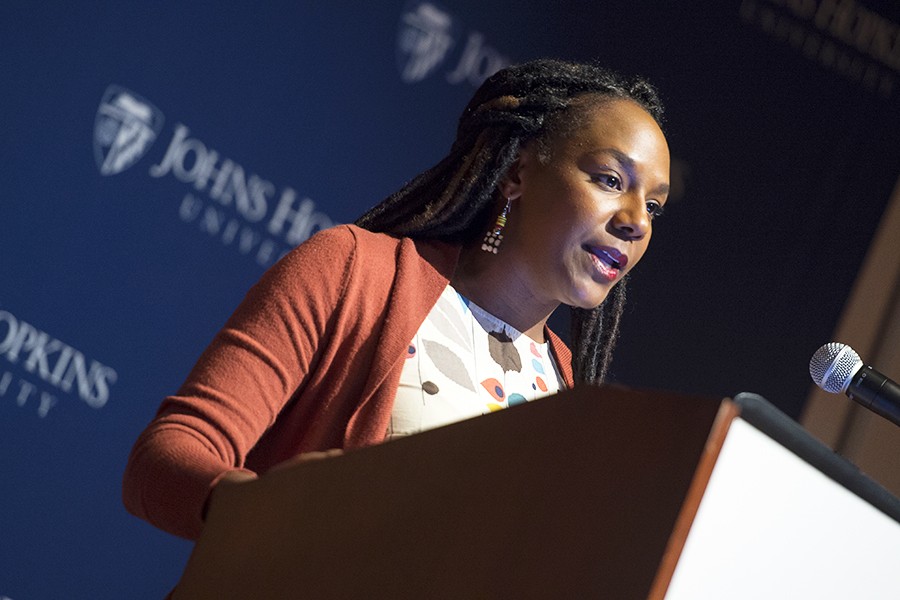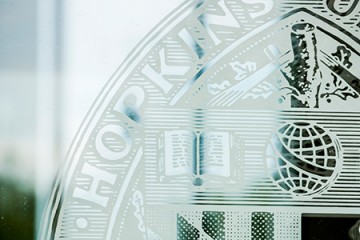In 2001, the NCAA imposed a ban on hosting postseason sporting events in the state of South Carolina, where the Confederate Flag was flown prominently. The NAACP, too, launched a 15-year economic boycott of the state.
And yet the flag, for many a symbol of hatred, racism, and division, continued to fly over South Carolina's statehouse grounds in Columbia, as it had since 1961 when it was raised in commemoration of the centennial anniversary of the Civil War. It remained there until a young activist named Bree Newsome scaled the 30-foot flagpole on June 27, 2015, declaring "This flag comes down today" as she ripped it from its hooks.
"I still felt strongly that the point must be made how absolutely intolerable it was for that flag to fly another day," Newsome said to an audience at Johns Hopkins University's Shriver Hall on Wednesday night as part of JHU Forums on Race in America.
South Carolina raised the flag again within 45 minutes. But weeks later, Gov. Nikki Haley signed a bill calling for the official removal of the flag.
Newsome's defiant act came in days after nine members of an African Methodist Episcopal church—Mother Emanuel—were massacred in Charleston, S.C. Their assailant, 22-year-old Dylan Roof, had been photographed waving the rebel flag.
Newsome's civil disobedience was fueled by that massacre and similar acts of racial violence. With the help of a harness and James Tyson, a white activist who agreed to spot her in a symbolic gesture of solidarity, she began her climb, knowing that she would be arrested before her feet could hit the ground. Both Tyson and Newsome were immediately jailed.
"So much blood has been spilled in the fight for racial equity up to this point," Newsome said. "And tragically—shamefully, I would say—it took the blood of nine more innocent people to finally shake the conscience of this nation surrounding that symbol of slavery, hatred, and terrorism that is the confederate flag."
"For us this is not simply about a flag," she added, "but rather it's about abolishing the spirit of hatred and oppression in all its forms."
The hashtag #keepitdown began to trend. Newsome, once an unknown community organizer, became an instant Internet hero, with images likening her to Wonder Woman popping up across social media channels. She remains a hero for many who came to hear her speak.
"I think what you did brought about change throughout the South at an exponential pace," said an audience member, a JHU student and AME church member. He said he took a leave of absence from Hopkins following the shooting, returned to his home in South Carolina, sat in the same Charleston church where the massacre occurred, and advocated for the flag's removal.
Added Bryan Carter, a political science PhD candidate who introduced Newsome at Wednesday's event: "Bree Newsome became the hero I needed, the heroine we all needed. ... Her activism is a reminder that it is incumbent of all of us to fight."
Newsome urged members of the audience to continue to fight for what they believe in, whether that means working at a grassroots level or engaging in acts of civil disobedience and public protests. She recently helped launch a series of classes about food education, which led to the creation of a community garden. Now the community garden is selling produce and her community is reaping the benefits.
It is crucial to remain mindful that we are all affected by and suffer from injustice, she said. "Nobody is free until we are all free."
Posted in Politics+Society









